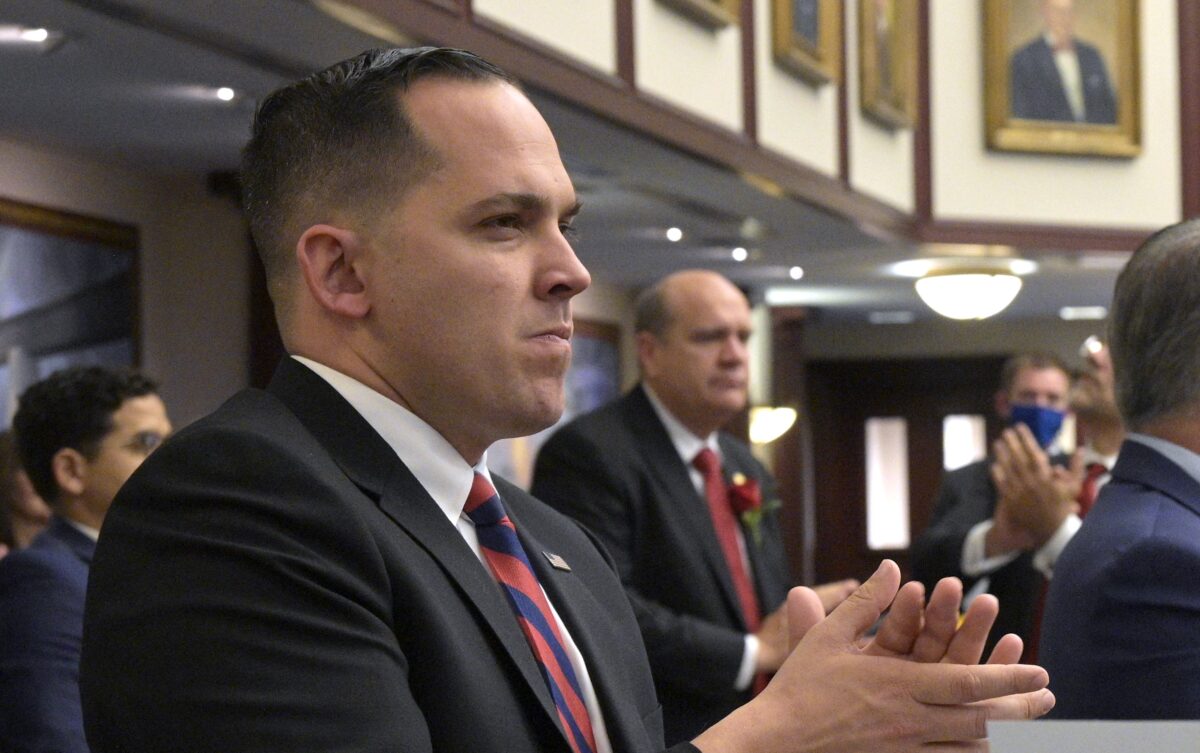GOP Congressional Candidate Got Into Law School With ‘Wildly Plagiarized’ Thesis Lifted from Wikipedia: Report

AP Photo/Phelan M. Ebenhack
Former Florida State Representative Anthony Sabatini, who is currently running for Congress, is the subject of a Daily Beast report that accuses him of plagiarizing his undergrad thesis, lifting several passages from Wikipedia and other sources.
Sabatini is a darling of the MAGA crowd who likes to tout his academic background; a magna cum laude graduate of the University of Florida, he was a double major in history and philosophy who went on to law school at the same institution, earning his juris doctorate in 2017. But according to the Daily Beast, he may not have earned his way in. Roger Sollenberger looked into Sabatini’s undergrad thesis about German philosopher Friedrich Nietzsche and said it was “wildly plagiarized”:
The Daily Beast’s review of the paper found that Sabatini lifted an astonishing amount of content verbatim from other sources. Worse, Sabatini — who double-majored in history and philosophy before being admitted to law school, also at the University of Florida — frequently pulls his passages from Wikipedia, and presents them without the required quotation marks or any clear attribution whatsoever.
The plagiarism starts from the very first sentence and includes either entire passages pulled verbatim from other sources or with “slightly different words” in the middle of lifted sentences. And some of the sources Sabatini cited are not sources at all, they’re completely made up.
Sollenberger’s reporting includes an analysis by Mark Algee-Hewitt, director of graduate studies and associate professor of digital humanities in the Stanford University English department, who called Sabatini’s paper “a fascinating text from a plagiarism standpoint.”
After a statistical and stylometric analysis, including automated database searches, Algee-Hewitt concluded that Sabatini had committed “egregious” acts of verbatim plagiarism. He also made a point to note that “the frequent misspellings in Sabatini’s text make matching these harder than it should.” As for the paper’s altered phrases, he said, the odds those occurred by chance are “one in quadrillions, if not more.”
As for what grade Sabatini should have earned for this “fascinating text,” Algee-Hewitt said he should have failed, which means Sabatini should have never even graduated, let alone been accepted into a highly-competitive law school.
And now, he’s running for a seat in the United States House of Representatives. Sabatini did not provide a comment to the Daily Beast, but if he did, it might go something like this:
Not all cultures and countries hold the same beliefs about personal ownership of language or ideas. In some cultures, the reiteration of another professional’s work can be a sign of respect or flattery towards the person whose work is reiterated.
That’s from Wikipedia. Or more specifically, Cultural attitudes towards plagiarism by Lucas Introna and Elspeth Wood from the University of Lancaster (January 2003).
New: The Mediaite One-Sheet "Newsletter of Newsletters"
Your daily summary and analysis of what the many, many media newsletters are saying and reporting. Subscribe now!






Comments
↓ Scroll down for comments ↓